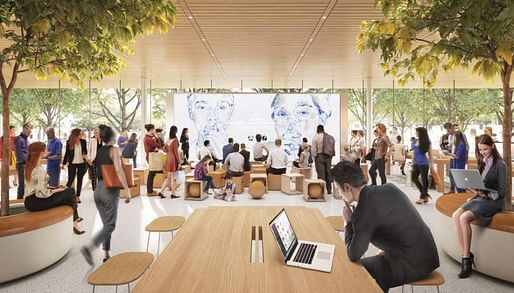
Kungsträdgården is the most important park in Sweden, [...] It is the thread that pulls together the historical power of the monarchy with the commercial blocks of Hamngatan and the working-class districts of Södermalm. This is very important for democracy because it has to do with power, symbolically and spatially.
Stockholm, Sweden's beloved capitol is home to stunning landscapes that keep residence and visitors mesmerized. Its cobblestoned streets are lined with amazingly preserved buildings, beautiful open water views, and public spaces. Nestled in the heart of Stockholm is Kungsträdgården, one of the most treasured and valued parks in Sweden. Revered by its inhabitants, once word got out that Apple had plans to "transform" their beloved space by creating a "town square," the people of Stockholm made their voices heard.
We get it, Apple has already taken over our lives by transforming daily communication, productivity, etc. But, does Apple have the leverage to transform public spaces? Town squares are defined as open, public spaces located at the heart of a city. To a trillion-dollar tech company like Apple, their intention of redefining the relationship between public and private spaces is exactly what they are aiming for in building an Apple store at the center of the Kungsträdgården.
“It’s funny, we actually don’t call them stores anymore,” Angela Ahrendts, Apple’s senior vice-president of retail, said in November last year... “We call them town squares, because they’re gathering places where everyone is welcome.”
The backlash from the city has helped shine a light on tech companies and their place within public domain and urban development. Are these retail strategies really aiming at creating new gathering centers where everyone is welcome? Despite their sleek and "Apple-esque" aesthetic, will retail spaces like these add or take away from public landmarks in historically rich towns and cities. Opposition to the project not only stirred responses from conservationists and city inhabitants but also from government officials.

When I heard about it, I thought it must be impossible. Stockholmers won’t let them build a big store in Kungsträdgården. City parks are a little bit holy in Stockholm. You can’t privatize a park.
Apple, along with other tech powers like Google, have tried their hand at incorporating these corporate-disguised structures in major public spaces like Stockholm, Melbourne, and Berlin. However despite their "good intentions," through opposition, project proposals find themselves shelved. Early in October, Berlin expressed its views on Google building a Google Campus in the city.
One reason projects like these cause such an outrage from citizens is the domineering effect these structures have on a public space. Instead of allowing the public space to function as it should, a public space, the appearance of privatized buildings "stakes a claim to be the park’s main building.” Can a balance be struck between public and privatized structures?
No Comments
Block this user
Are you sure you want to block this user and hide all related comments throughout the site?
Archinect
This is your first comment on Archinect. Your comment will be visible once approved.